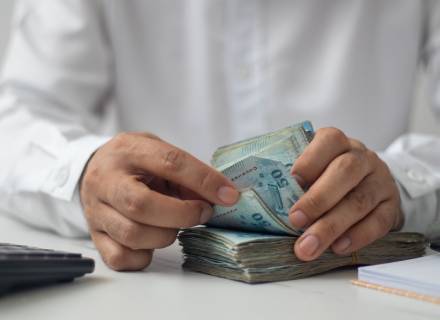Based on favourable operational conditions and high oil prices, Fitch Ratings believes that Saudi Islamic banks’ standalone credit profiles will continue to be good.
There will be strain on capital, finance, and liquidity due to strong credit expansion. It is anticipated that banks will keep broadening their sources of funding using wholesale funding, which includes issuing sukuk, which is increasingly contributing to the mix of funding sources. However, deposits will probably continue to be the primary funding source.
Saudi Islamic banks have a strong position in the banking industry thanks to their larger retail franchises, which enable them to offer superior asset quality, reduced funding costs, and higher margins.
In recent years, lending has expanded more slowly than finance due to the requirement that all residential mortgages adhere to Sharia law.
According to Fitch Ratings, Saudi Arabia leads the world in Islamic banking, having the highest percentage of Islamic financing (85%) of any nation that permits conventional banks to coexist with Islamic banks.
By the end of 2023, 84% of conventional banks’ funding came from customer deposits, vs. 80% for Islamic banks. By the end of 2023, the average financing-to-deposits ratio for Islamic banks had increased from 99% at the end of 2022 to 102%, indicating a quicker growth in financing than in deposits.
Except for Al Rajhi Banking and Investment Corporation, which gains from a finely tuned retail deposit base, deposit concentration is still quite high.
The research stated that even in the face of tighter conditions, the central bank’s liquidity-management instruments and the expanding supply of government sukuk help Islamic banks’ efforts to manage their liquidity.
Talking about the Saudi banking sector, it demonstrated strong performances in 2023, with operating income growing by 9.5%, driven by non-interest revenue, according to professional services firm Alvarez & Marsal.
“The performance of the top 10 banks in the Kingdom is largely robust and positive. Operating income grew by 9.5%, reflecting the effect of higher non-interest income,” the firm noted, after analysing premier financial institutions like Saudi National Bank, Al-Rajhi Bank, Riyad Bank, Saudi British Bank, Banque Saudi Fransi, Arab National Bank, and Alinma Bank.
The report highlighted a significant improvement in the net interest margin by 3.5%, contributing to a boost in the sectors’ profitability. Return on equity increased to 14.5%, showcasing the industry’s robust state of affairs.
The report also indicated a decline in the cost of risk, suggesting a marginal decrease in total impairments, which positively impacted the sector’s overall stability. Additionally, liquidity received a notable enhancement and attributed to record government-related entity deposits, which constituted 68.2% of total inflows, ameliorating liquidity conditions in the banking system.

